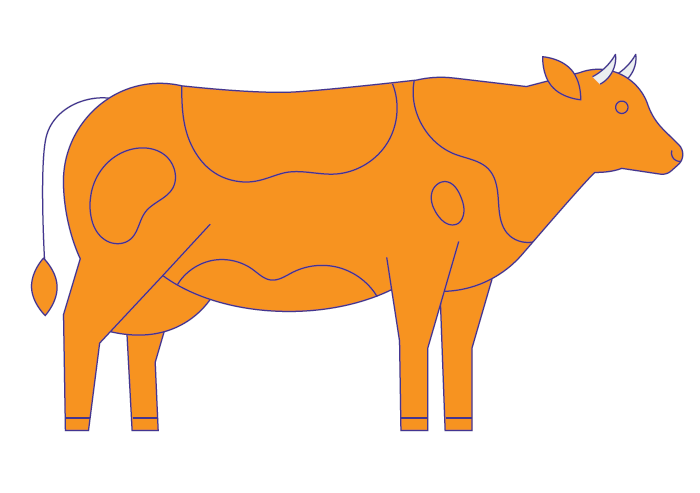GMO Crops and Food for Animals
Do animals eat GMO crops?
More than 95% of animals used for meat and dairy in the United States eat GMO crops. Research shows that eggs, dairy products, and meat from animals that eat GMO food are equal in nutritional value, safety, and quality to foods made from animals that eat only non-GMO food. Studies also show that the health and safety of animals are the same whether they eat GMO or non-GMO foods.
When animals eat GMO foods, the DNA in the GMO food does not transfer into the DNA of the animal that eats it. This means that animals that eat GMO food do not turn into GMOs. If the DNA did transfer from food into the animal that eats it, an animal would have the DNA of any food it ate, GMO or not. In other words, cows do not become the grass they eat, and chickens don’t become the corn they eat. Similarly, the DNA from GMO food for animals is not in the meat, eggs, or milk from the animal.
Who makes sure food for animals is safe?
The U.S. Food and Drug Administration (FDA) is the primary regulatory agency responsible for ensuring the safety of GMO and non-GMO food for animals. The FDA Center for Veterinary Medicine manages this responsibility. FDA requires that all food for animals be safe for animals to eat, be produced under clean conditions, contain no harmful substances, and be accurately labeled—similar to the requirements for foods for humans.


